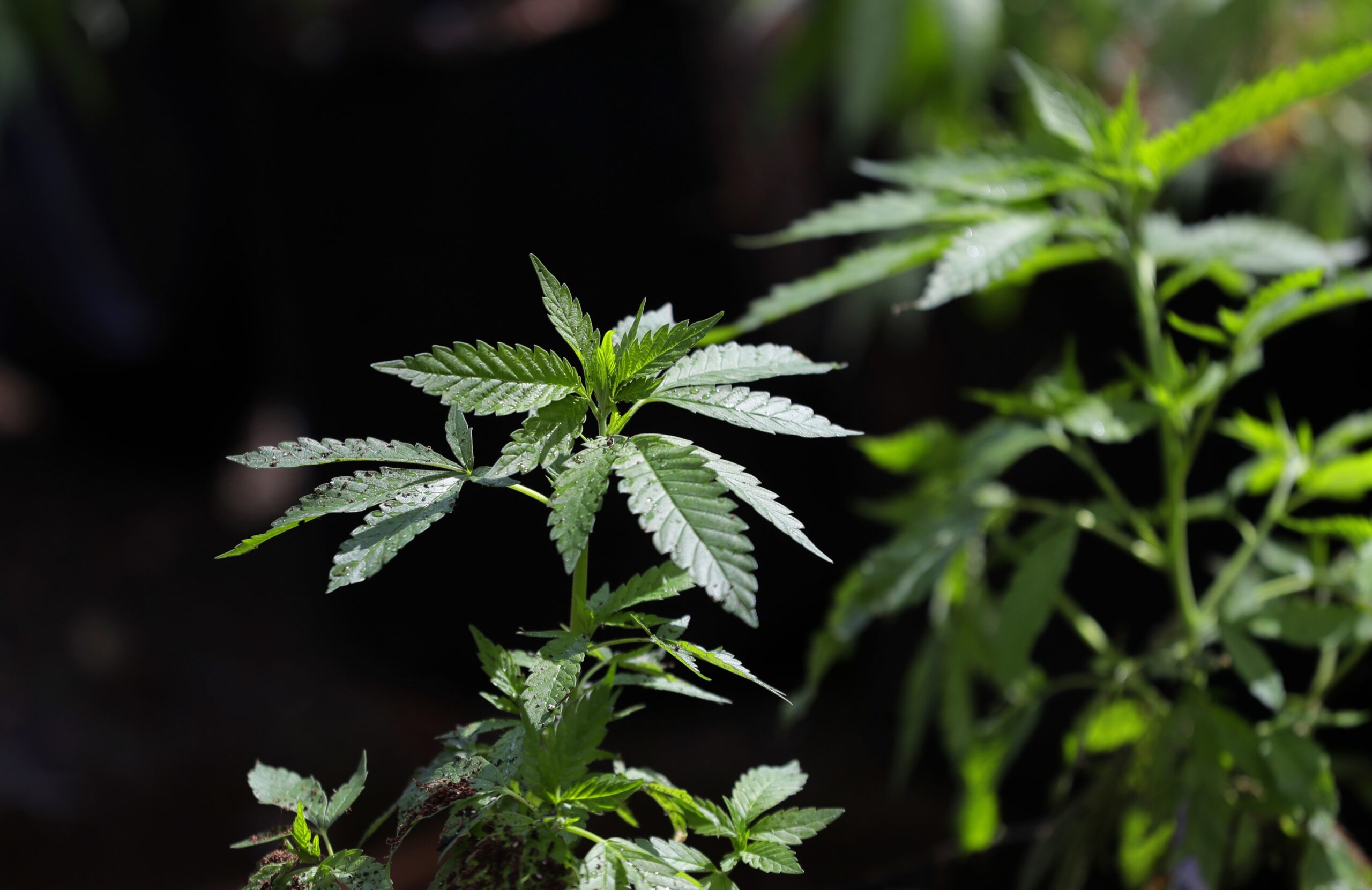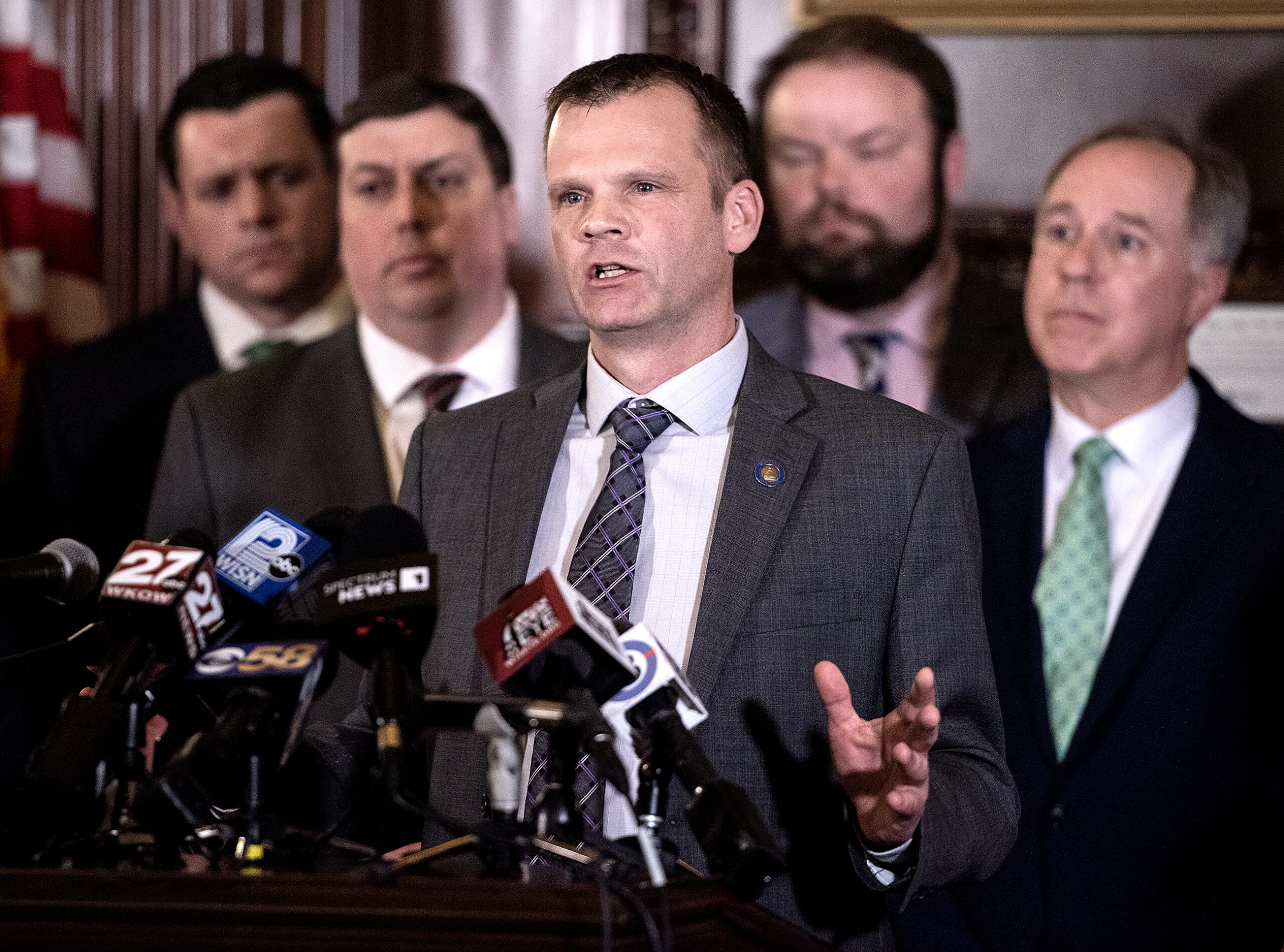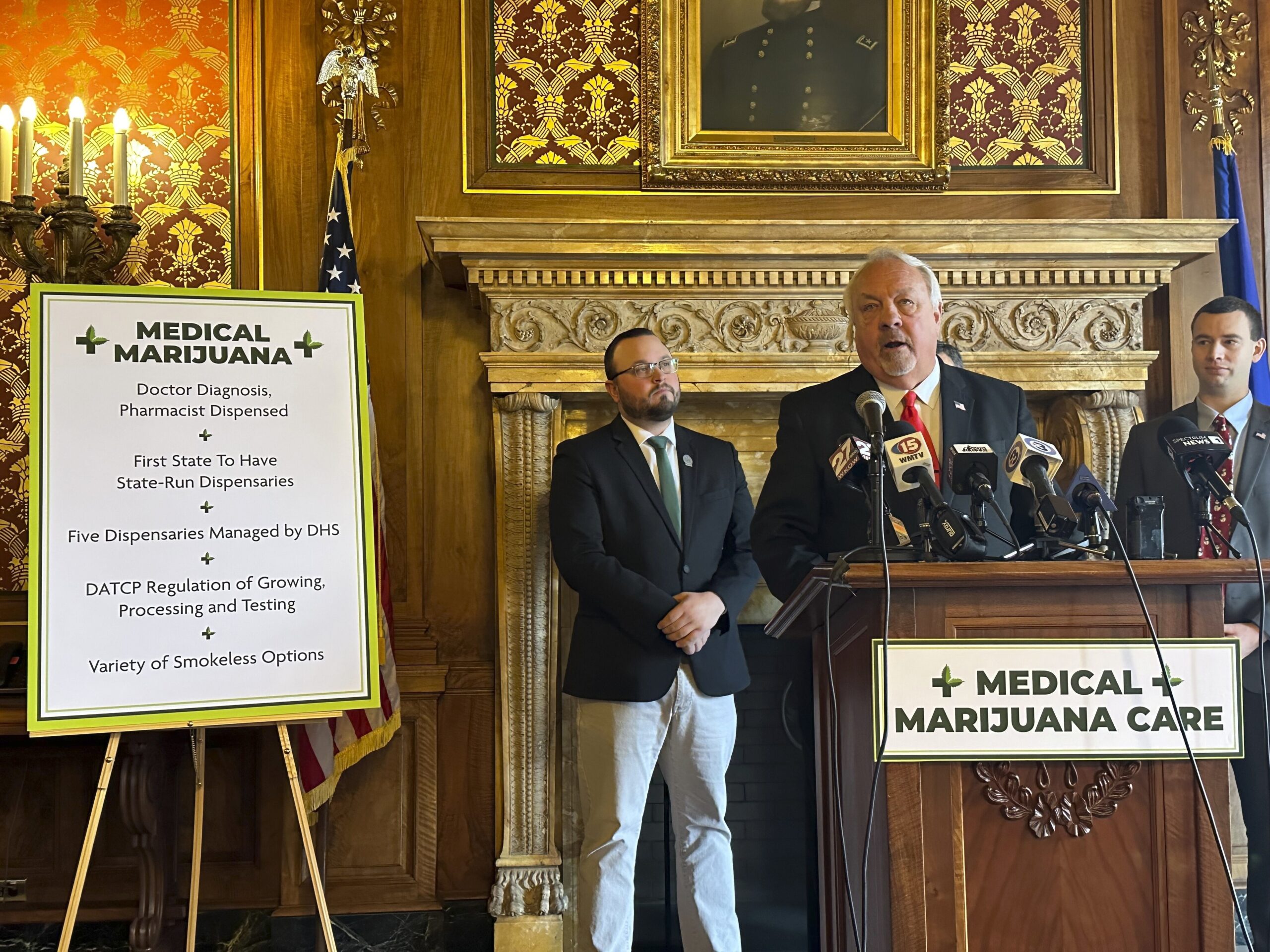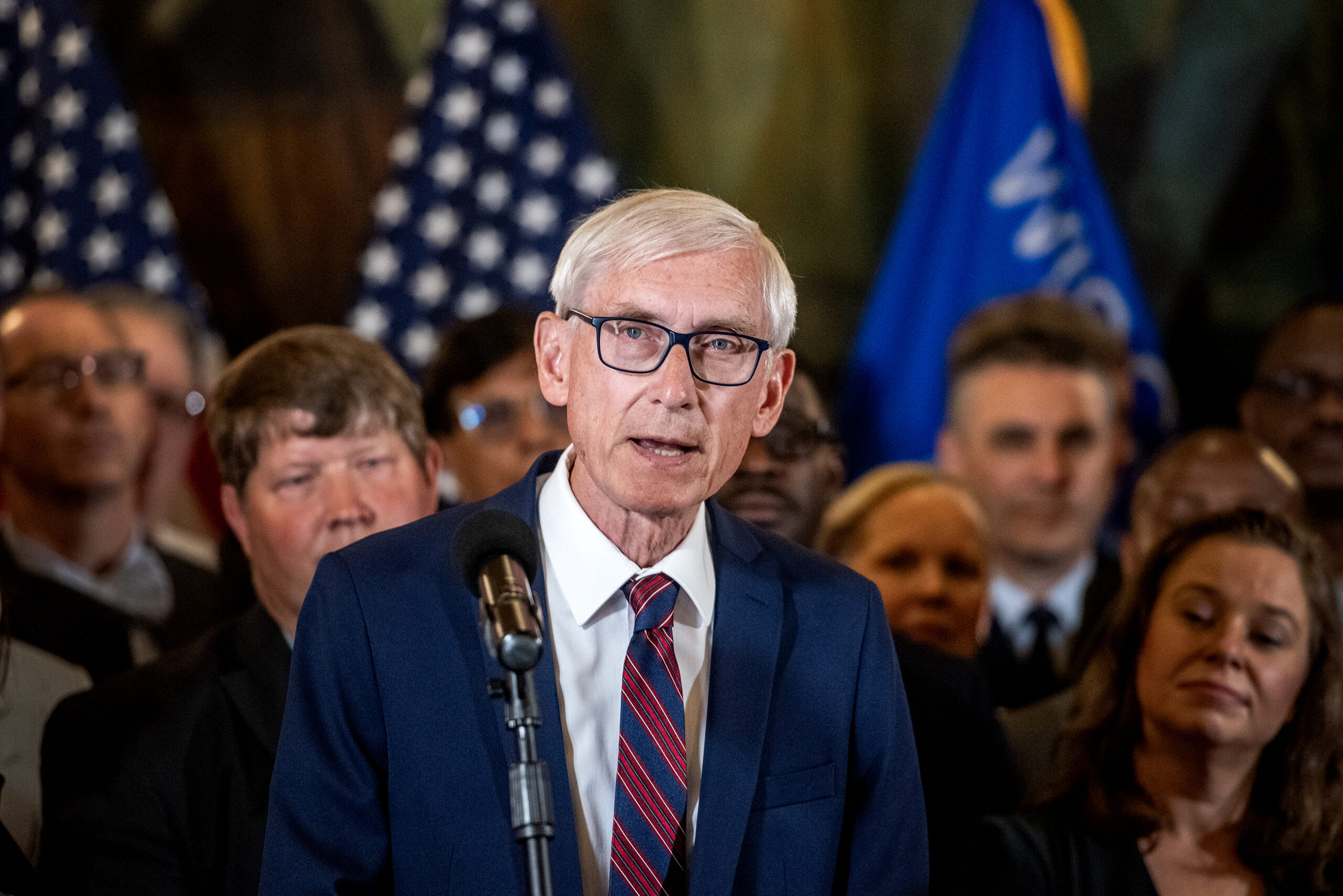Gov. Tony Evers will propose legalizing medical marijuana in his state budget address later this month, the governor announced Monday.
The push for medical legalization will be accompanied by several other marijuana-related proposals, including legalization of small amounts of marijuana for personal use, establishing expungement procedures for people with marijuana possession on their criminal records and bringing state laws on cannabidiol, also known as CBD oil, in line with federal standards.
“I believe and I know the people of Wisconsin overwhelmingly believe that people shouldn’t be treated like criminals for accessing medicine that can change or maybe even save their lives,” the governor said at a Capitol press event Monday morning.
Stay informed on the latest news
Sign up for WPR’s email newsletter.
Under the governor’s proposal, individuals would be able to use marijuana to treat medical conditions, as long as they have authorization from a physician. Marijuana has been used to treat conditions and side effects to conditions including cancer, post-traumatic stress disorder and seizures.
A number of advocates joined the governor for his announcement at the state Capitol, including military veteran Steve Acheson, who has advocated for medical marijuana legalization in Wisconsin for several years.
Acheson is an Iraq War veteran who has used marijuana to treat pain related to a spinal injury and PTSD. He said using the drug allowed him to stop taking a cocktail of prescription medications.
“Really, the only option that was provided to me was pills,” Acheson said of his previous treatment. “I was on seven or eight different pills every day, from opiates to muscle relaxers.”
He said they left him feeling like “a zombie.”
He and others argued Monday that increasing access to medical marijuana would reduce the need for opiate prescriptions, thereby combating the state’s opiate epidemic for military veterans and civilians.
Rep. David Crowley, D-Milwaukee, also argued Evers’ proposals would help address racial inequities in incarceration in Wisconsin.
“There is clear evidence that harsh drug laws do not deter marijuana use — all they succeed in doing is disproportionately locking up Wisconsinites of color,” Crowley said.
A number of reports from nonprofit organizations and the federal government in recent years have outlined Wisconsin’s disproportionately high incarceration rate of African-Americans and other individuals from communities of color.
A 2013 study from the University of Wisconsin-Milwaukee found Wisconsin had the highest incarceration rate in the United States for black men.
Under the governor’s proposal, people could not be arrested for possessing less than 25 grams of marijuana for personal use. It would also put in place an expungement procedure for individuals convicted of possessing, manufacturing or distributing less than that amount of the drug. Individuals would need to have completed their sentence or probation in order to be eligible for expungement.
The plan would also change state law related to CBD oil. Current law requires individuals to get a yearly prescription from their doctor for CBD oil. The governor’s proposal would lift that restriction, allowing people to buy and use the oil without a doctor’s orders.
Assembly Speaker Robin Vos, R-Rochester, issued a statement Monday afternoon pushing back on Evers’ proposal. Vos said it “appears to go too far.”
“It makes it easier to get recreational marijuana and provides a pathway to full legalization, which I do not support,” Vos said. “I’m open to medical marijuana when it’s prescribed by a doctor but it has to be done in a targeted way without allowing recreational use.”
Senate Majority Leader Scott Fitzgerald, R-Juneau, has said he is opposed to medical marijuana in the past. His office offered no further comment Monday.
Meanwhile, one of the state’s most powerful business organizations, Wisconsin Manufacturers and Commerce, also came out against the plan, saying it would make workplaces less safe.
“There is not enough research on this issue to determine if marijuana can be used safely, and there is plenty of research that shows it impairs an individual’s ability to operate equipment safely,” said Kurt Bauer, president and CEO of the organization, in a prepared statement.
Wisconsin Public Radio, © Copyright 2024, Board of Regents of the University of Wisconsin System and Wisconsin Educational Communications Board.





